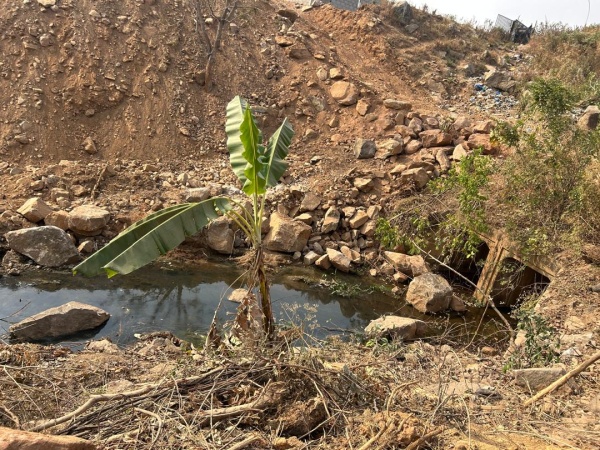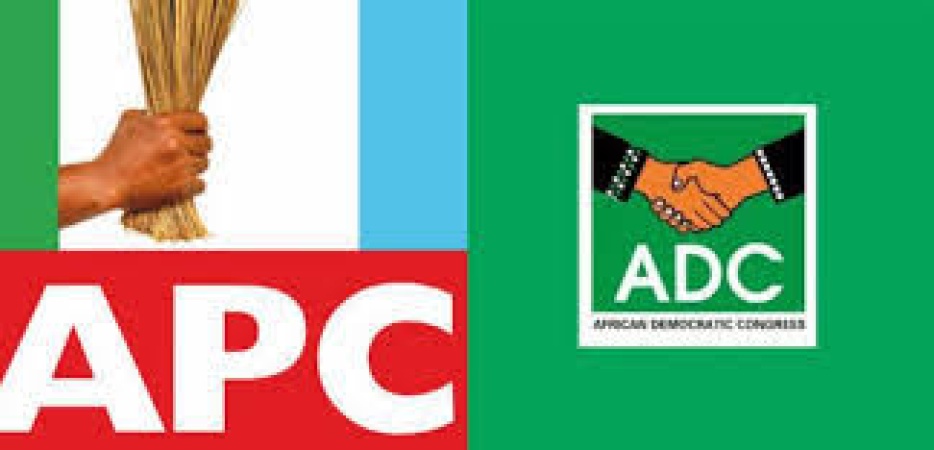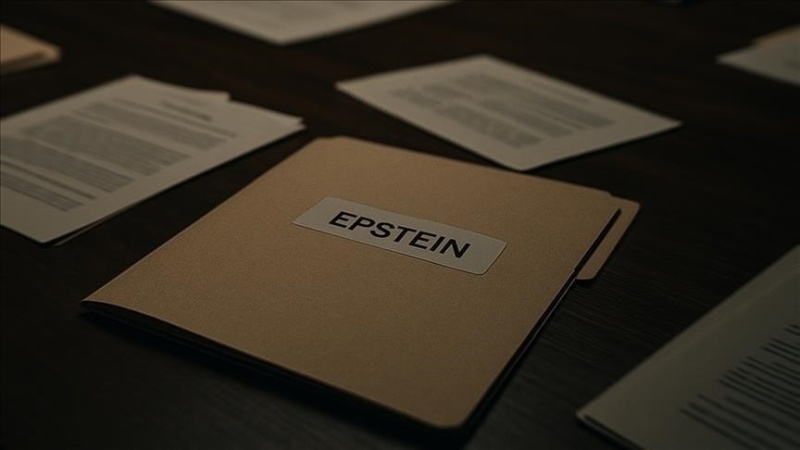

























Loading banners


NEWS EXPRESS is Nigeria’s leading online newspaper. Published by Africa’s international award-winning journalist, Mr. Isaac Umunna, NEWS EXPRESS is Nigeria’s first truly professional online daily newspaper. It is published from Lagos, Nigeria’s economic and media hub, and has a provision for occasional special print editions. Thanks to our vast network of sources and dedicated team of professional journalists and contributors spread across Nigeria and overseas, NEWS EXPRESS has become synonymous with newsbreaks and exclusive stories from around the world.

The Dangote Petroleum Refinery
The trade dispute between the Petroleum and Natural Gas Senior Staff Association of Nigeria (PENGASSAN) and Dangote Petroleum Refinery has put Nigeria?s ambition of becoming Africa?s refining hub to the sternest test.
This comes just as the shutdown of the refinery may plunge the country into a N14.7 billion daily loss, triggering force majeure with a possible failure to meet supply contracts and the return of fuel scarcity across the country.
The development, which may spiral across the oil and gas sector, could push the Nigerian economy?s daily revenue loss into about $110.8 million from crude oil export and cause shutdown of gas power plants ? a situation which may ground the already distressed economy.
Already, gas providers reported yesterday that the gas facilities supplying the Escravos Lagos Pipeline System had been shut down, resulting in the disruption of gas supply to the distribution network. Operators and customers were informed that gas would be suspended temporarily till the crisis is addressed.
Stakeholders warned that the country faces renewed foreign exchange (FX) pressures, as PENGASSAN directs its members nationwide to withdraw their services following the alleged mass dismissal of more than 800 Nigerian workers by Dangote Refinery.
In a reaction, members of the organized labour sector have called for the reinstatement of the 800 sacked workers, alleging that Dangote?s action posed a multi-dimensional danger to the country. He was accused of displacing qualified Nigerian professionals and replacing them with foreign labour.
PENGASSAN shuts down Dangote Refinery, fertiliser plants
This is just as the Petroleum and Natural Gas Senior Staff Association of Nigeria (PENGASSAN) shuts down the Dangote Refinery and fertilizer plants yesterday morning. The move followed a directive by the association to its members nationwide to withdraw all services effective 12:01 am today.
It equally directed its members working across field locations, including control room operations, panel operations, and outfield personnel, to withdraw services effective 06 hours yesterday to commence 24-hour prayers.
At an emergency National Executive Council (NEC) meeting of all its branches, on Saturday, the association said Dangote Refinery?s unilateral action to sack over 800 workers for joining PENGASSAN was an affront to all workers in Nigeria and a deliberate violation of Nigeria?s labour laws, the Federal Government?s Constitution and the International Labour Organization (ILO) Convention.
The 800 sacked workers, according to PENGASSAN, were sacked barely 24 hours after declaring their interest in joining the union.
PENGASSAN General Secretary, Lumumba Okungbowa, in a statement, said Dangote Refinery had become notorious for ?enslaving Nigerian workers,? and that the eventual sack of Nigerians and hiring of 2,000 Indians showed ?disloyalty to a country that has given him the most incentives any company has ever enjoyed at taxpayers? expense.?
According to PENGASSAN, Nigerian workers at the refinery had been subjected to the worst type of working conditions in the oil and gas industry.
To this end, the association resolved that all processes involving gas and crude supply to Dangote Refinery should cease immediately. It equally urged international oil company (IOC) branches to ramp down gas production and supply to the refinery and petrochemicals arm.
Dangote accuses PENGASSAN of deploying terrorist tactics to frustrate investors
DANGOTE, however, warned that cutting crude oil and gas supplies to the refinery could plunge Nigerians into fresh rounds of fuel scarcity while inflicting huge revenue losses on the government.
In a statement, the refinery described the directive as ?criminal, reckless and an act of economic sabotage? that, if enforced, would disrupt the production and nationwide supply of critical petroleum products, including petrol, diesel, aviation fuel, kerosene and cooking gas.
The company stressed that the products are indispensable to daily life and the economy, warning that Nigerians at every level, from households to businesses and industries, would bear the brunt of shortages. It noted that a sudden disruption in supply will translate into insufferable hardship for millions of Nigerians.
In a position statement, Dangote has accused the association of deploying ?bully?, ?terror? and ?guerrilla? tactics to force investors to submit.
Dangote recalled that in 2007, when the Federal Government sold its moribund Port Harcourt and Kaduna refineries to Blue Star Consortium, led by the Dangote Group, for $750 million, it was PENGASSAN and its ally, the Nigeria Union of Petroleum and Natural Gas Workers (NUPENG), that sabotaged the deal.
?It is now obvious to everyone that the FGN?s decision at the time was the right one and that PENGASSAN and NUPENG ignominiously wrote their names on the wrong pages of history,? the company said.
The refinery also faulted the union?s role in the much-publicized rehabilitation of the Port Harcourt Refinery, describing it as a ?ruse? which PENGASSAN ?knowingly celebrated despite being a scam on Nigerians.? The statement further accused the union of opposing amendments to the Petroleum Industry Act (PIA) that would have freed up federal liquidity and attracted private-sector funding into Nigeria?s upstream oil ventures.
Beyond policy obstruction, Dangote Refinery accused the association of mismanaging billions of naira in annual check-off dues to bankroll the ?lavish lifestyles? of its leaders, without accountability to members. By contrast, the refinery highlighted its own record of economic contributions within a short period, citing road construction, worker training, the creation of thousands of Nigerian jobs, and a compensation structure that ?outdistances the best in the Nigerian oil and gas industry.?
Stakeholders across the sector have been divided as some blamed Dangote Group, especially for breaking an agreement earlier brokered by the government, while others insisted that unionism must not be allowed to hold the entire country to ransom.
They stressed that both parties are only after their interests at the detriment of the ordinary citizens.
PENGASSAN has equally come under fire in the course of the dispute for what many described as economic sabotage, with many questioning the legality of their activities.
Last month, Nigeria?s oil production stood at 1.63 million barrels per day. If sold at the prevailing average price of $68 per barrel, Nigeria will be losing about $110.8 million a day at a time when the Federal Government is struggling to meet its revenue target as contained in the 2025 budget.
At the domestic level, an estimated average of 17 million litres of fuel has been supplied into the Nigerian market from Dangote Refinery, according to July data submitted by the Nigerian Midstream Downstream Petroleum Regulatory Authority (NMDPRA) to the Federal Account Allocation Committee (FAAC).
Putting off that supply is enough to spark a 32 per cent shortage and increase inflation due to the direct impacts of premium motor spirit on the prices of food items, as well as goods and services.
Stakeholders wade in
STAKEHOLDERS warn that the development would also set a wrong precedent for other emerging refineries, including those of the Nigerian National Petroleum Company Limited, if labour unions are allowed to cut off feedstocks and disrupt operations. Dangote, petroleum products marketers and labour unions have, in recent weeks, been pushing for control and market share ? a squabble driven more by self-interest and survival than national development.
An energy analyst, Ademola Adigun, argued that while the recurring confrontations may appear disruptive, they are forcing industry players to set boundaries and respect agreed-upon rules.
He noted that disruptions to supply have so far been limited, but the episode shows the dangers of relying too heavily on a single source. According to him, the current impasse was triggered by the refinery itself, which he said failed to honour agreements reached under federal government mediation.
He further stressed that dismissing staff for union activities constitutes a violation of fundamental rights.
A partner at accounting and advisory firm Kreston Pedabo, Olufemi Idowu, observed that expectations were high when operations began at the refinery, with hopes that the facility would transform the oil sector and strengthen the wider economy.
Instead, he said, it has been dogged by disputes with industry counterparts, as he insisted that the latest clash with PENGASSAN over union membership is particularly concerning.
Idowu questioned the legitimacy of compelling workers in a private enterprise to join unions contrary to their contracts.
In his view, cutting off crude and gas supplies in response to the disagreement was a disproportionate response that could harm the economy.
He warned that prolonged disputes could push up fuel prices, strain households and businesses, and discourage both local and foreign investors.
Idowu called on the government and all relevant parties to engage constructively within the framework of the law to find a lasting solution.
Chairman of the Board of Trustees of the Community Development Committees of Oil and Gas Producing Areas, Joseph Ambakederimo, described the shutdown of the refinery as sabotage.
He argued that vested interests opposed to local refining were conspiring to frustrate Nigerians? access to affordable fuel. He called the disruption ?economic sabotage? and urged the government to adopt robust measures to safeguard stability in the downstream sector.
Ambakederimo warned that prolonged uncertainty would damage investor sentiment, undermine gains in product availability and price stability, and risk fuelling inflation.
He argued that Nigeria?s entrenched appetite for petroleum imports is being challenged by the Dangote facility, which he described as a disruptor and potential game-changer.
Also, a lawyer and expert on labour matters, Paul Omoijiade, said Dangote could not prevent his employees from joining the unions.
Noting that the capitalists cannot do anything without labour, which is one of the four factors of production, he warned against the implications of trampling on the right of workers to associate.
Also, a development economist at Governance Professional, Prof. Chiwuike Uba, called for immediate action, noting that industrial disputes should not escalate into a national emergency.
He urged that a neutral tripartite framework, including the Ministry of Labour, NNPC, Dangote management, PENGASSAN, and an independent arbiter, should swiftly negotiate a suspension of supply disruptions while contested dismissals are reviewed.
According to him, contingency supply measures must avert scarcity, including transparent releases of strategic stocks and emergency imports.
The downstream sector, already described as volatile, is facing further strain as industry operator Jide Pratt characterized the landscape as being in transition, with competing interests jostling for market share.
While the mega refinery has corrected a long-standing anomaly by giving Nigeria large-scale refining capacity, Pratt argued that such progress must translate into additional employment and not the displacement of existing jobs.
If the sector employs tens of thousands, he said, the refinery should be creating further opportunities, not substituting them.
Pratt also defended the role of unions, describing them as an essential safeguard for workers despite frequent criticisms.
However, he raised concerns over logistics, particularly the heavy reliance on trucking fuel from a single refinery site without a comprehensive environmental impact assessment.
Globally, he noted, refined products are distributed through regional depots or pipelines, both of which minimize costs and risks. He questioned why Nigeria?s pipeline development initiatives, launched under previous administrations, remain stalled, insisting that moving thousands of trucks daily is unsustainable.
On competition, Pratt emphasized that no player should dominate in a deregulated market. Refineries, in his view, must have the freedom to sell both domestically and internationally, while government-owned facilities should be opened up to private investment where viable.
He cautioned against punitive measures such as denying a refinery gas supply, warning that such precedents could distort the market.
TUC pledges solidarity to PENGASSAN
MEANWHILE, the Trade Union Congress of Nigeria (TUC) has joined PENGASSAN in calling for the immediate and unconditional reinstatement of all affected workers, placing all affiliates on stand-by for a national industrial action if Dangote management fails to comply with its demands within a reasonable time.
A statement by the Secretary General of TUC, Nuhu Toro, yesterday, said the Congress demanded a public apology from Dangote management with firm assurances against future victimization.
Stating that it stands in full solidarity with the affected workers and with their union, its affiliate PENGASSAN, whose members have been victimized merely for declaring membership.
He called for an independent investigation involving the Ministry of Labour, ILO, and stakeholders into the refinery?s labour practices.
He said such actions amount to a direct assault on Section 40 of the Nigerian Constitution and on Nigeria?s obligations under International Labour Organization (ILO) conventions.
According to him, no corporation, regardless of size or wealth, will be allowed to trample on the dignity and rights of Nigerian workers.
He said the TUC stands united and ready to act decisively in defense of its members and the Nigerian workforce.
FG assures steady supply of petroleum products, summons parties
THE Federal Government has reaffirmed its commitment to ensuring a consistent supply of refined petroleum products nationwide, following a meeting of the Steering Committee of the Domestic Crude Oil and Refined Products Sales in Local Currency Initiative.
Chaired by the Minister of Finance and Coordinating Minister of the Economy, Mr Wale Edun, the meeting addressed recent concerns in the downstream oil sector, including a reported suspension of the Naira-for-crude oil arrangement with Dangote Refinery, which has now been resolved amicably.
The committee also discussed issues raised by the Petroleum and Natural Gas Senior Staff Association of Nigeria (PENGASSAN) regarding the refinery.
Attendees included the Minister of Budget and Economic Planning, Senator Abubakar Atiku Bagudu; the Chairman of the Federal Inland Revenue Service (FIRS), Mr. Zacch Adedeji, who chairs the Technical Committee; and representatives from the Nigerian Midstream and Downstream Petroleum Regulatory Authority, Nigerian National Petroleum Company (NNPC) Ltd., Central Bank of Nigeria (CBN), Afreximbank, and Dangote Refinery.
The Federal Government has also summoned the PENSASSAN and the management of Dangote Refinery to an emergency meeting over ongoing rift between the duo.
The government also urged PENSASSAN members nationwide to reconsider its strike over its dispute with Dangote Refinery, saying the plan, if enforced would take great till on the economy.
According to the Minister of Labour and Employment, Maigari Dingyadi, the meeting will hold at the ministry?s headquarters in Abuja.
The committee assured Nigerians that there will be no disruption in the supply of petroleum products.
The government reiterated that the Naira-for-crude initiative will continue as planned. It also pledged to urgently resolve outstanding disputes, particularly between PENGASSAN and Dangote Refinery, in good faith.
The Federal Government emphasized its dedication to ensuring energy security, protecting consumers, and maintaining stability in the domestic petroleum market. (The Guardian)